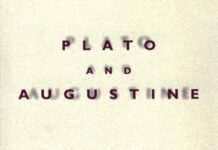
Ebook Info
- Published: 2020
- Number of pages: 210 pages
- Format: PDF
- File Size: 0.60 MB
- Authors: Karl Jaspers
Description
One of the founders of existentialism, the eminent philosopher Karl Jaspers here presents for the general reader an introduction to philosophy. In doing so, he also offers a lucid summary of his own philosophical thought. In Jaspers’ view, the source of philosophy is to be found “in wonder, in doubt, in a sense of forsakenness,” and the philosophical quest is a process of continual change and self-discovery.—Print ed.
User’s Reviews
Reviews from Amazon users which were colected at the time this book was published on the website:
⭐The existentialist philosopher Karl Jaspers here gives an introduction to those who would beinterested in studying philosophy. Philosophy is different from other fields of knowledge,certainly in the sciences where there’s a clear line of progress and advances as history goes on.In philosophy, the answers of the greatest thinkers contradict each other. There are sequencessuch as Socrates/Plato/Aristotle or Locke/Berkeley/Hume or Descartes/Spinoza/Leibniz,but each general group is eventually contradicted by another. Furthermore, Plato mightstill be the most impressive philosopher.Philosophy is about the questions of meaning that are asked by kids before the curiosityleaves them. Not everybody has the ability to be an artist, a doctor or a builder. Buteverybody has questions about the deeper meaning of life. Jaspers broadly takes inspirationfrom Kierkegaard, along with others like Heidegger, Sartre and Gabriel Marcel. Jaspers doesn’tappear to be a Christian but appears to be a theist.He then goes into the different civilizations, China, India, but focusing most on the West.Ancient philosophy goes from the pre-Socratics to Plotinus. Then there’s a good section onChristian philosophy from St. Augustine to William of Ockham. Then there’s the era of Kant,Hegel, Fichte and Schelling. In the 19th century Jaspers identifies the most unique thinkersas Kierkegaard and Nietzsche, in opposite directions.He recommends learning one field of science, be it physics, biology or geology. He alsorecommends studying in depth one great philosopher; if you’re not sure, he suggestsPlato for the ancients and Kant for the moderns. You need both to use your own thinkingprocess and to know what great thinkers have said. As my great teacher Lee said, theseare the two blades of the scissors.
⭐.This is a great, practical and user friendly book in the basics of what philosophy is, the history of philosophy which includes the idea of the axial age, the difference between absolute and relative knowledge, the idea of nonknowledge and the connection of philosophy with science.Jaspers, like Plato, tells us that philosophy is the direction we take, the idea of the whole picture. While science is the measurable analysis and empirical observation, philosophy is the direction behind such, the idea of why we are learning the what. This is very much like Plato’s Meno, where Socrates and Meno decide that virtue is beyond knowledge and is instead the direction of opinion, or as Jaspers calls it “nonknowledge.”On page 127, Jaspers writes:”By technically applying my knowledge I can act outwardly but nonknowledge makes possible an inner action by which I transform myself. This is another and deeper kind of thought; it is not detached from being and oriented toward an object but is a process of my innermost self, in which though and being become identical. Measured by outward, technical power, this thought of inner action is as nothing, it is no applied knowledge that can be possessed, it cannot be fashioned according to plan and purpose; it is an authentic illumination and growth into being.”Philosophy must reside in uncertainty, waywardness towards the unknown, never absolute like science. On page 129,”Philosophy must even leave the possibility of full communication in uncertainty, though it lives by faith in communication and stakes everything on communication. We can believe in it but not know it. To believe that we possess it is to have lost it.”We must have philosophy to direct our science (virtue) and remove us froe scientific superstition and we must have science to have substance to our philosophy and remove us from philosophical superstition.Pages 159-160:”Any philosopher who is not trained in a scientific discipline and who fails to keep his scientific interests constantly alive will inevitably bungle and stumble and mistake uncritical rough drafts for definitive knowledge. Unless an idea is submitted to the coldly dispassionate test of scientific inquiry, it is rapidly consumed in the fire of emotions and passions, or else it withers into a dry and narrow fanaticism . . . rejecting superstitious belief in science as well as contempt of science, philosophy grants its unconditional recognition to modern science.”Jasper ends his book with a short outline on the major thinkers and writers in philosophy and our personal decision of who to study to build up our knowledge. But can virtue be taught? He endorses what an old counsel to study Plato and Kant since they cover all the essentials. An overall good read, a substantial subject in a modern society devoid of substance and profound meaning.”Today independence seems to be silently disappearing beneath the inundation of all life by the typical, the habitual, the unquestioned commonplace.” – 1954, KARL JASPERS, Way to Wisdom, An Introduction to Philosophy, p. 110
⭐Excellent service . Book was as described.
⭐book sucks. hard to understand the author
⭐The book has most of its pages missing the first or second letters of each line, it makes reading a tough book even worse. Maybe you will be lucky, maybe this was a one off, but mine is virtually unreadable, I should have sent it back
Keywords
Free Download Way to Wisdom: An Introduction to Philosophy in PDF format
Way to Wisdom: An Introduction to Philosophy PDF Free Download
Download Way to Wisdom: An Introduction to Philosophy 2020 PDF Free
Way to Wisdom: An Introduction to Philosophy 2020 PDF Free Download
Download Way to Wisdom: An Introduction to Philosophy PDF
Free Download Ebook Way to Wisdom: An Introduction to Philosophy


